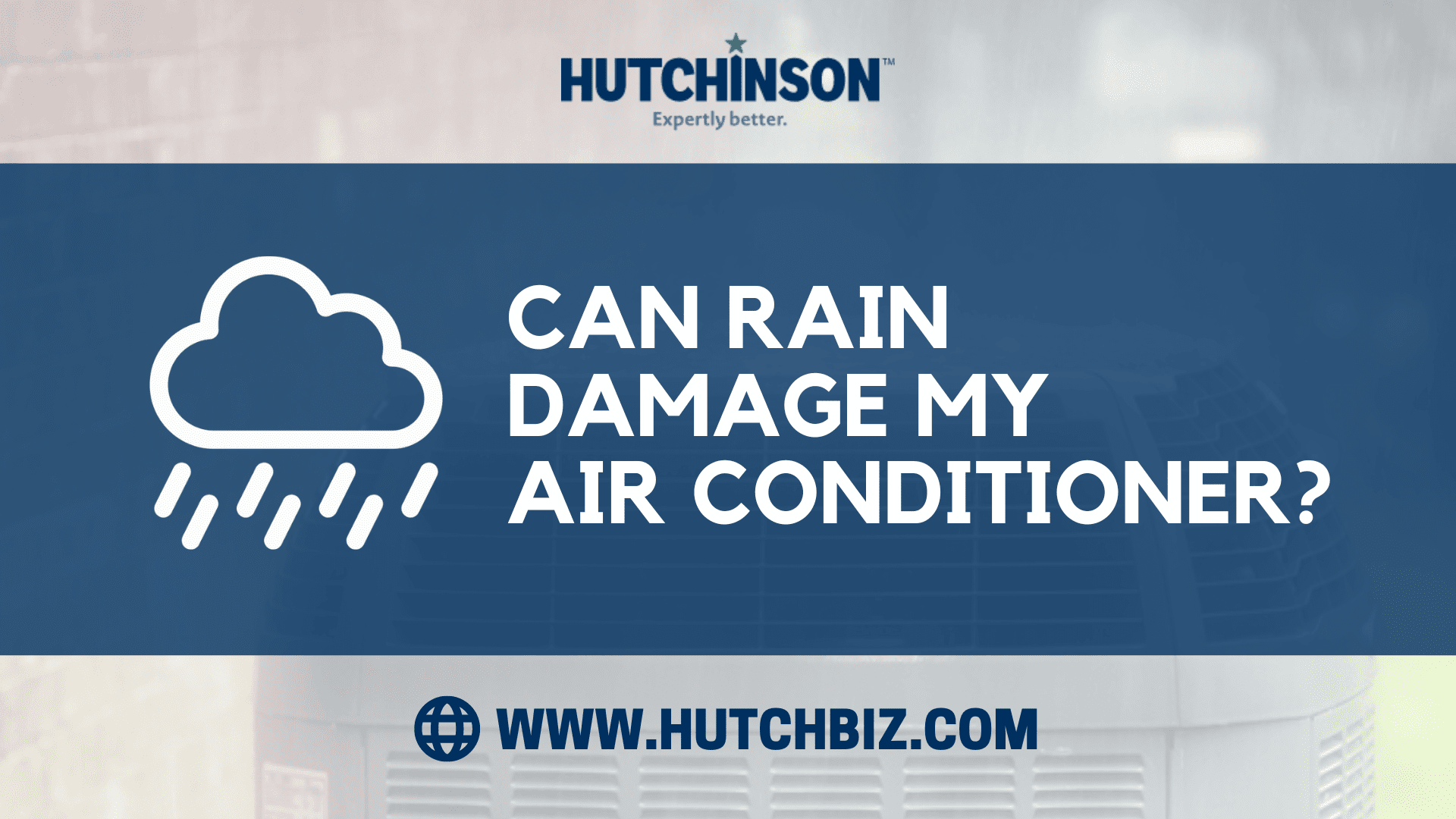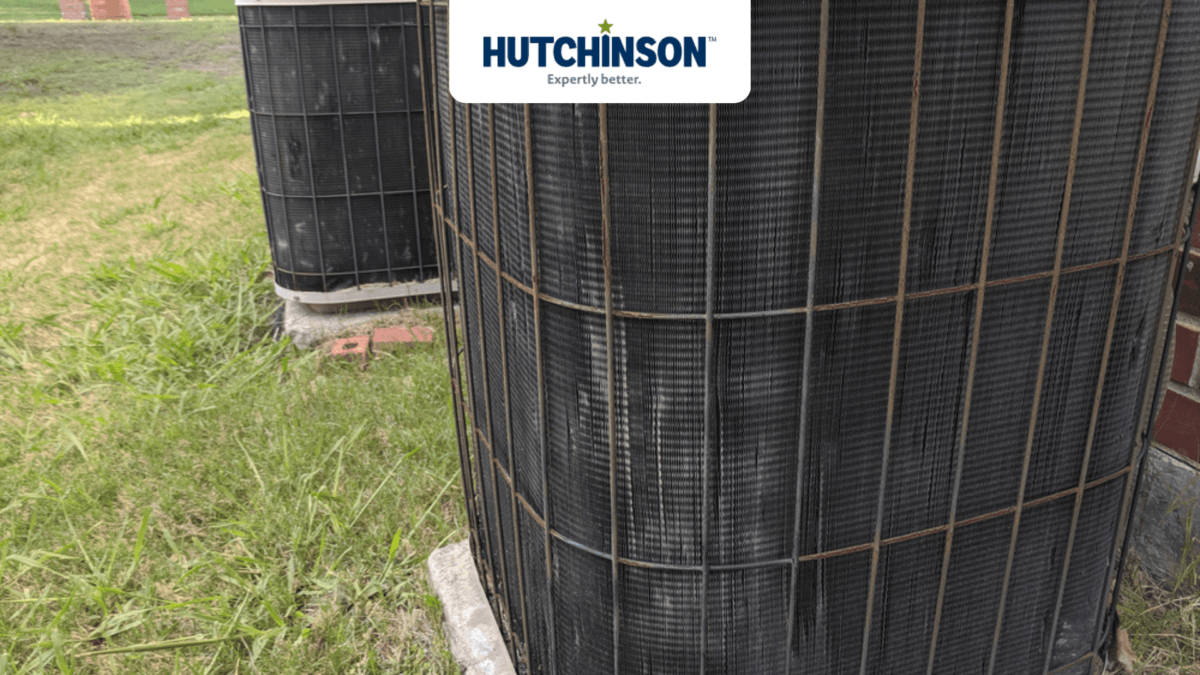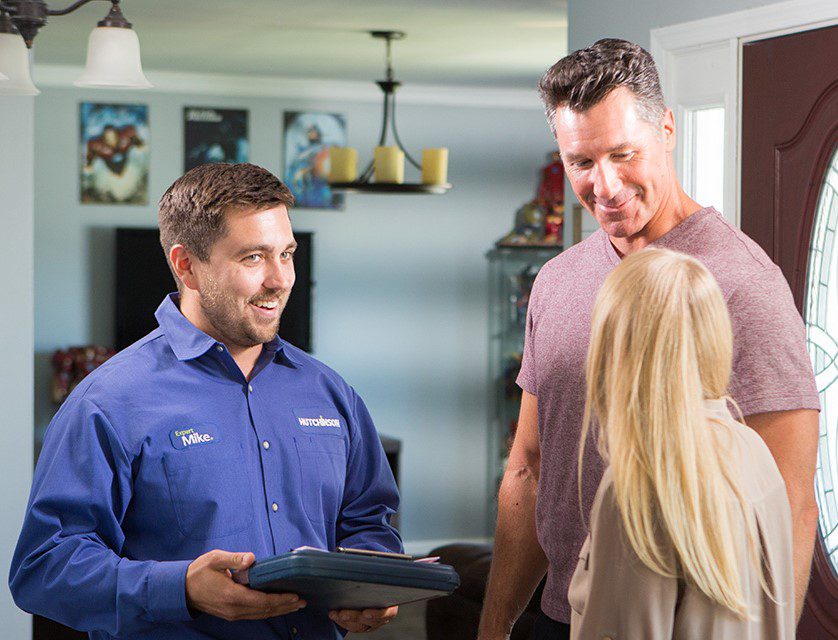
Picture this: you’re outside next to your air conditioner unit (with all of its electrical components and wires) when you see a dark thundercloud approaching. Naturally, you wonder: can rain damage my air conditioner?
The good news? Air conditioner units are designed to handle bad weather. Your system protects all that wiring and electrical work with a hearty HVAC shell. Small amounts of water are even healthy for your air conditioner unit as the water washes away dirt, dust, and debris that clog up your system and break down components.
Still, if your yard becomes inundated with flood water or if you’re weathering abnormally harsh winds and rain, your AC unit can eventually sustain damages. Furthermore, flooded basements can damage air handlers and furnaces. Looking for more information? Learn more below.
Effects of Rain on Your Outdoor Air Conditioning Unit
Even if you’ve never been to an electrical school, you probably already know water and electricity aren’t the best combination. By that logic, you may be worried about your outdoor AC unit.
Most components within the outdoor compressor/condenser unit consist of aluminum, copper, or other metals. These parts are designed to endure heavy rainfall while continuing to cool and dehumidify your home. The electrical connections and elements are securely sealed to prevent any damage from the indirect moisture exposure caused by rain.
Effects of Rain on Window Air Conditioning Units
Have you ever wondered, “Will rain damage a window air conditioner?” The short answer is no.
Much like central air units, window units are designed to withstand various weather conditions. However, there are specific factors to consider, especially since these smaller units are usually not maintained by professionals.
When using a window unit, your home’s interior must be protected against flooding, which can seep into your window unit and cause damage.
Then there’s the problem of humidity, which can lead to damage if too much accumulates. Because of this, properly seal your window AC unit, even if you intend to remove it during colder seasons. Adequate insulation will reduce extra humidity caused by window AC units.
Additionally, covers can shield your window AC unit from debris like leaves, branches, ice, and hailstones.

3 Ways Your AC Unit Can Be Damaged by Rain
Although AC units are built to withstand average amounts of rain, that doesn’t make them impervious to severe weather events. There are three primary ways your AC unit can degrade from rain: flooding, storm damage, and corrosion.
- Flooding: While a few inches of rain storms will be okay if your AC is muddled in deep-standing or flooded water above 15 inches, components can break down, and electrical wiring may become affected.
- Storm damage: Rainwater isn’t the only thing you should worry about during a storm. High winds can knock over branches, shrubs, or trees, which can fall and damage your unit. Meanwhile, dirt, leaves, or other elements can lodge inside your unit, decreasing its functionality.
- Corrosion: Unlike rainwater, which dissipates with proper airflow, trapped condensation can lead to the deterioration of wiring and rubber components and accelerate metal parts’ corrosion.
The best way to prevent damage to your AC unit after a storm is to have your unit checked by a certified professional.
Should the Condenser Be Covered?
Generally, it’s best not to cover the condenser unit. While rain poses no threat to the condenser, trapped moisture does. When you cover your unit, the moisture cannot evaporate and can linger and fester in your unit, eventually breaking down the parts and mechanisms.
The sole reason why you should cover the condenser is to shield it from wind-borne debris during severe storms like hurricanes. In such cases, something sturdy like plywood should be securely fastened with the power off, and the cover should be removed promptly after the storm subsides. Otherwise, it’s best to keep covers off and clean out accumulated dirt.
If you decide to buy a cover, buy a proper cover from your unit manufacturer. Tying your unit in plastic will trap moisture without shielding your unit from flying debris, which is the only valid reason you want to cover your unit in the first place.
For further assistance, contact your local technician. They will advise you on the best times and types of covers for your air conditioner unit.
Contact Us for Your Air Conditioning Needs

If you’re concerned about rain on your air conditioner, don’t be. Rain does not threaten your unit and can even clear out clogged debris from the inside of your unit. It is this debris that poses a great threat to your unit as it can block airflow and wear down important pieces.
What you should be worried about, though, is the impact heavier storms can enact on your AC unit. Storm debris, falling branches, heavy winds, and corrosion can impede or even halt your AC’s ability to function. When that happens, it’s best to call a professional.
Air conditioning units are confusing: but they don’t have to be. Contact our office and book your appointment for air conditioner maintenance, cleaning, and more. Call us today to schedule your appointment to protect against your rain air conditioner.

